Description
What is a 4G LTE Omnidirectional Antenna Embedded FPC Antenna?
The 4G LTE Omnidirectional Antenna CTRF-ANTENNA-FPC-7027-4510-IPEX Embedded FPC Antenna is a high-gain 6dBi FPC antenna with 120mm length RG1.13 low loss coax cable and Ipex, U.FL, MHF, connector antenna manufactured by C&T RF Antennas Inc. It is for IoT, M2M, and Cellular industries.
Internal U.FL connector antenna 4G LTE omnidirectional antenna Ipex connector flexible PCB aerial 3dbi FPC antenna for modules, smart devices, IoT, and M2M industries.
C&T RF Antennas Inc. provides IoT and M2M antennas with other radio frequencies such as 169MHz, 230MHz, 315MHz, 433MHz, 868MHz, 915MHz, Lora, NFC, VHF&UHF, NB-IoT, ADS-B, GSM, Wi-Fi 2.4GHz, 5.8GHz, 2G 3G 4G LTE, GPS, GNSS, 5G NR, UWB, etc.
C&T RF Antennas Inc. also provides 4G LTE antennas in many types, such as Dipole Antennas, Whip Antennas, Marine Antennas, Router Antennas, MIMO Antennas, Combo Antennas, PCB Antennas, FPC Antennas, Spring Antennas, Sector Antennas, Yagi Antennas, etc., for the IoT and M2M industries.
Contact us for the 4G LTE omnidirectional Antenna datasheet, 4G LTE omnidirectional Antenna pricing, and inventory on the 4G LTE Omnidirectional Antenna.
4G LTE Omnidirectional Antenna Embedded FPC Antenna Specifications
4G LTE Omnidirectional Antenna Embedded FPC Antenna Electrical Specifications |
|
| RF Antenna Type | Embedded FPC Antenna |
| Model | CTRF-ANTENNA-FPC-7027-4510-IPEX |
| Frequency | 700-960MHz, 1710-2700MHz |
| Gain | 2/4dBi |
| VSWR | ≤2.0 |
| Impedance | 50 Ω |
| Polarization | Vertical Polarization |
| Cable Type | RG1.13 |
| Connector | U.FL/IPEX |
| Cable Length | 120mm |
| Lightning Protection | DC-Ground |
4G LTE Omnidirectional Antenna Embedded FPC Antenna Mechanical Specifications |
|
| FPC Board Dimension | 45x10mm |
| Weight | Approx. 5g |
| Material | Flexible PCB |
| Operation Temperature | -40˚C~+85˚C |
| Storage Temperature | -40˚C~+80˚C |
| Color | Black |
| Antenna Design | Dipole Array |
| Mounting | Sticker/Connector |
| Safety, Emission, and other | RoHS Compliant |
| Applications | ISM/SCADA/Utilities, IoT/NB-IoT/LoRa, 2G 3G 4G LTE/LTE-IoT, GSM/GPRS/UMTS, etc |
4G LTE Omnidirectional Antenna Flexible Antenna Features
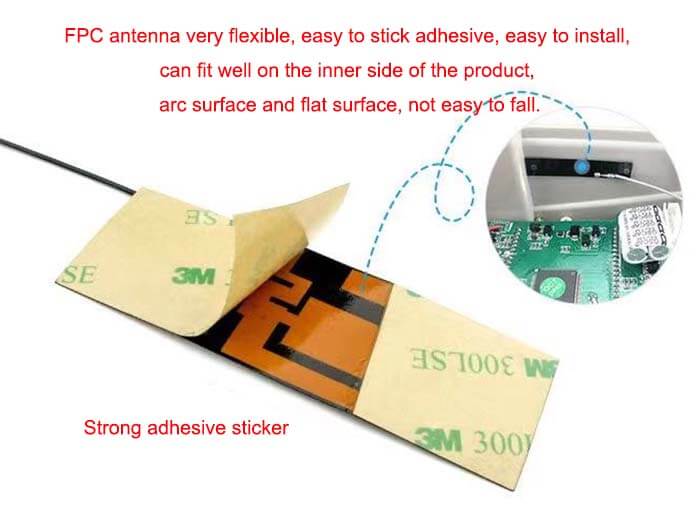
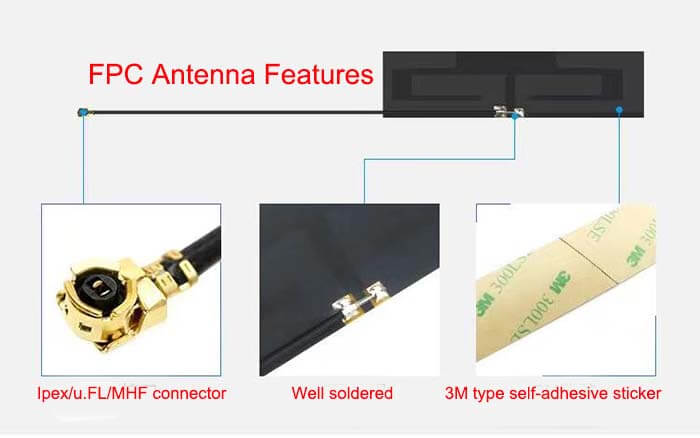

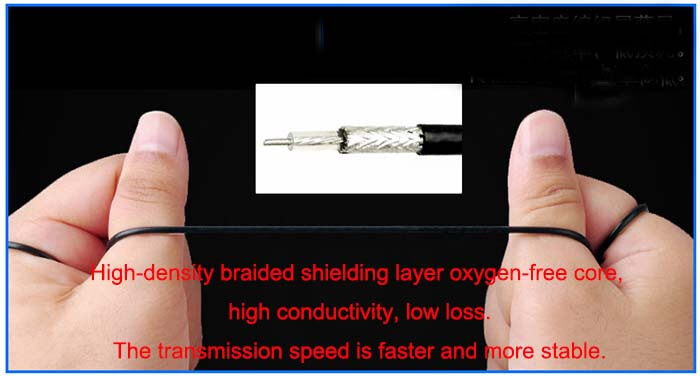
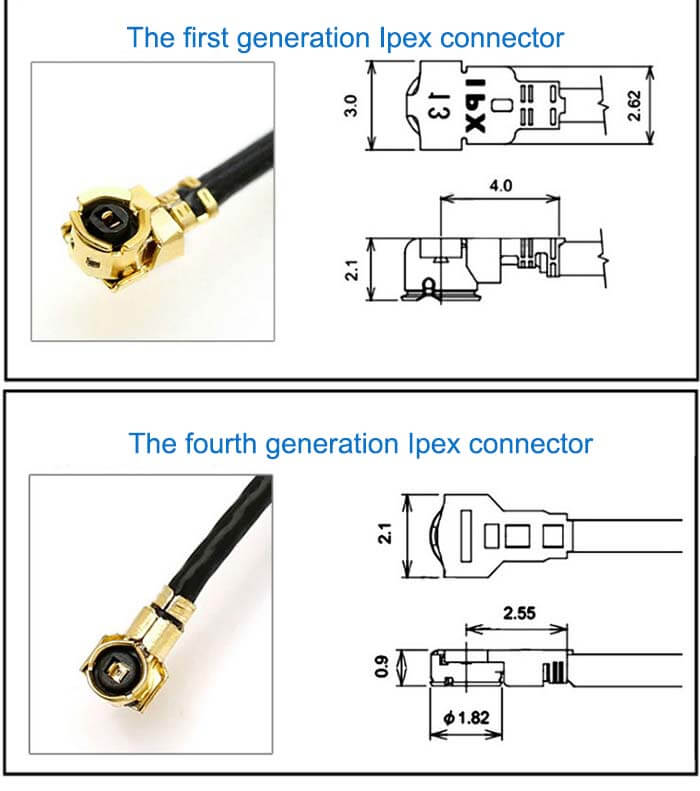
4G LTE omnidirectional Antenna Applications
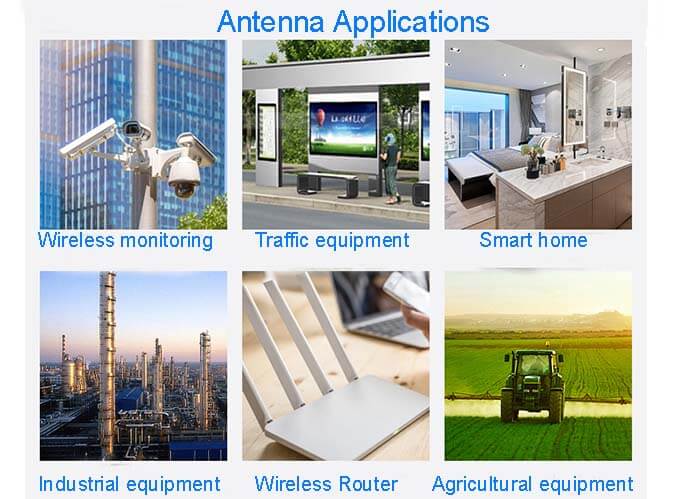
4G to 5G development prospects
On the whole, most of the service data provided by 4G networks are all-IP networks, so it can meet the development needs of mobile communication services to a certain extent.
However, with the rapid development of an economic society and Internet of Things technology, new mobile communication services such as cloud computing, social networking, and the Internet of Vehicles are constantly emerging, which puts a higher level of demand on communication technology.
In the future, the mobile communication network will completely cover our office, entertainment, rest areas, and residential areas, and each scene will have completely different requirements for the communication network.
For example, some scenarios require high mobility, and some scenarios require a higher traffic density. However, 4G networks cannot meet these requirements.
Therefore, in response to the new needs of future users, we should focus on exploring higher-speed and more advanced mobile network communication technology.
The fourth-generation mobile communication technology has high bandwidth, so it presents high-definition pictures and videos to meet people’s needs. 5G was born for the Internet of Things.
Compared with other network technologies, the 5G communication network has a larger capacity while ensuring a faster Internet speed.
Generally, network transmission is performed by connecting Internet equipment through smart terminals. 5G technology provides a larger network platform for the Internet of Things, thus meeting greater operational requirements.
4G networks can provide certain services to smart users, but they cannot be optimized promptly based on changes and needs generated by the Internet of Things.
The terminal equipment supported by the 5G communication network is several times more than the equipment supported by the 4G communication network, while ensuring lower energy consumption. The 5G communication network solves the situation that the use of 4G networks cannot continue to play games in real-time.
As a communication network system with efficient connection and low energy consumption, the 5G communication network has undergone certain changes in the network, business, and management under the premise of continuous updating and reform of Internet technology, which has led to changes in the service targets of related industries.
While 5G is being built on a large scale, many users question the slowing down of 4G networks.
In 2019, there was a round of rumors of a 4G speed reduction. At that time, the three major operators said that they had never received any request for a speed limit on 4G, and had never restricted users’ 4G speed.
A director of the Information and Communication Development Department of the Ministry of Industry and Information Technology said that the Ministry of Industry and Information Technology has built a nationwide monitoring platform to monitor 4G network speed through technical means.
Monitoring shows that the average download rate of 4G across the country has continued to increase in recent years, and overall, there has been no significant decline in the rate.
However, he also admitted that the 4G network is a shared network, shared by all users in the area, and the rate will fluctuate within the range. The network experience rate will also be affected by many factors, including the number of users, the scale of traffic, and website visits.
For example, in places where users are densely populated, such as train stations and concerts, it may cause a temporary drop in experience rate.
An analyst in the communications industry believes that operators have already invested large-scale capital budgets in 5G construction with limited financial resources, which has led to a decline in 4G network investment and operating expenses.
As the current 4G users still far exceed the 5G users, this will inevitably increase the pressure on the existing 4G network and reduce the user experience on the 4G network.
Another trend is that with the large-scale development of 5G construction, operators are still gradually retiring 2G or even 3G networks to free up spectrum resources and reduce operation and maintenance costs.
In the process of retiring 2G and 3G networks, it is necessary to guide users to transfer to 4G, which further increases the number of bearer users and the traffic scale of 4G networks.

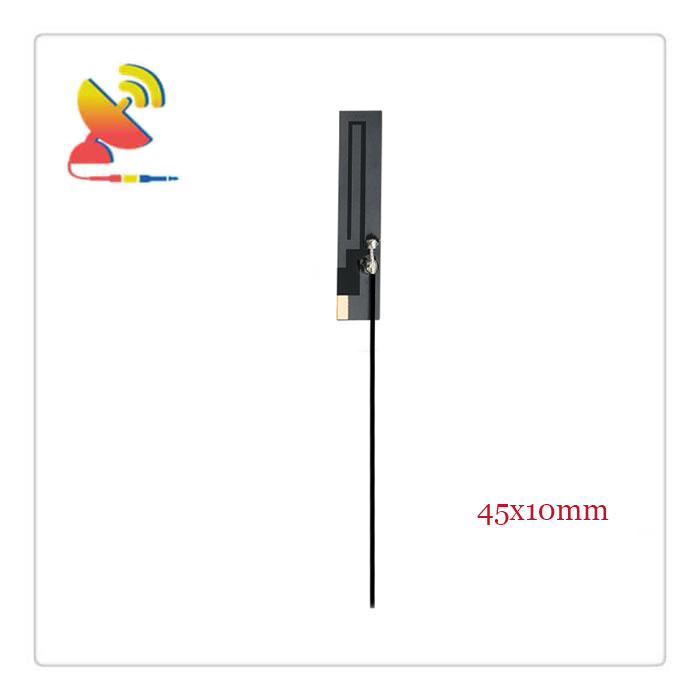
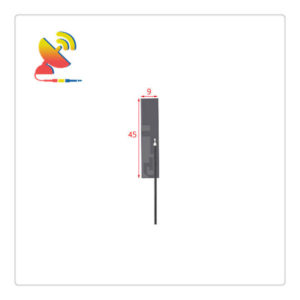
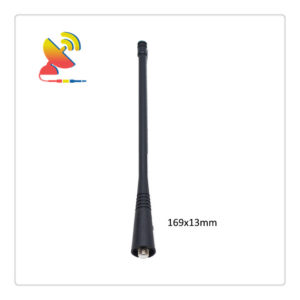
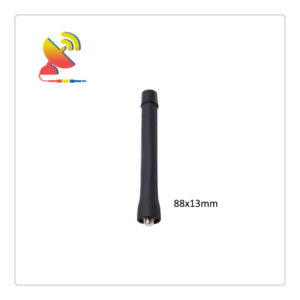
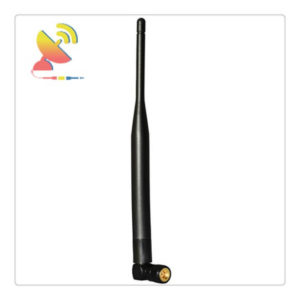
Reviews
There are no reviews yet.